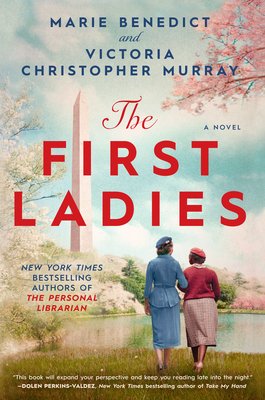The First Ladies: A Duet of Friendship and Change
As I opened the pages of The First Ladies by Marie Benedict and Victoria Christopher Murray, I felt a palpable thrill—like unearthing a hidden gem in the realm of historical fiction. Knowing the incredible partnership that birthed this narrative, following their successful collaboration on The Personal Librarian, I was eager to dive into the depths of an extraordinary friendship that defied the societal norms of its time.
At the heart of this poignant narrative are two remarkable figures: Mary McLeod Bethune and Eleanor Roosevelt. Their relationship stands as a beacon of hope during an era marred by deep racial inequities and social upheaval. The bond they forged was unlikely, yet it proved transformative, not just for themselves but for countless others. It was a friendship that challenged norms, catalyzed change, and reshaped the narrative of what it meant to fight for justice.
One of the book’s most powerful themes revolves around the agonizing slowness of change. As I turned each page, I felt a mix of frustration and admiration for both women. Their struggles to advocate for the marginalized, despite a world that often turned a blind eye, resonated deeply with my understanding of modern social movements. It brought to mind the paradoxes we still face today—choosing between competing priorities in the name of progress.
Benedict and Murray weave their narratives with a deftness that makes the historical context come alive. The pacing felt just right, interspersing moments of tension with breath-catching hope. Their prose flows gracefully, capturing the nuances of emotions, making it impossible not to become wrapped up in the inner lives of these two extraordinary women. I was particularly struck by a passage that drew parallels between their sacrifices and those present in ongoing social justice battles. It reminded me that history often echoes in unexpected ways.
The dialogue between the characters, shaped by both personal experiences and societal expectations, added an additional layer to the book. It sparked a reflection on privilege—how Eleanor, despite her struggles, wielded a certain power that Mary did not. Their relationship forces readers to confront our historical lenses and question who we empower in our narratives today, an inquiry that extends well beyond the confines of the book.
As I absorbed their friendship’s complexities, I recalled attending a virtual event where Benedict and Murray spoke about their writing journey and the significance of examining women who shaped history while remaining in the shadows. It was in that moment that I appreciated this book even more. It challenged the narrative of forgotten heroines and brought forth their power.
For anyone interested in rich character studies, social justice, or simply enjoying a beautifully crafted story, The First Ladies is a must-read. It’s not just a historical tale; it’s a call to reflect on our past, and an invitation to consider how we can foster genuine connections that drive meaningful change today.
In conclusion, The First Ladies left me not only feeling enlightened but also inspired to advocate for those whose voices are still silenced. This is a narrative that will stick with me long after the final page is turned—five stars for its unforgettable portrayal of two extraordinary women who dared to dream amid a society that often stifled them. If you appreciate stories that celebrate resilience, you won’t want to miss this one.
[ad_2]







